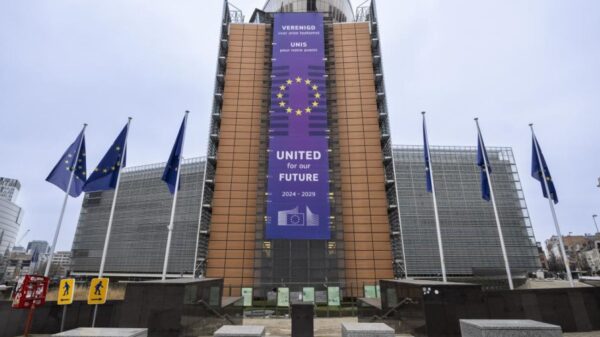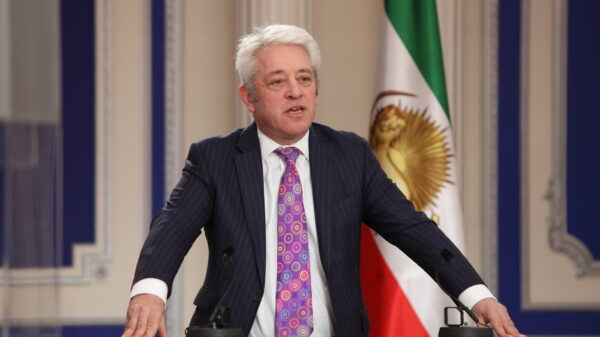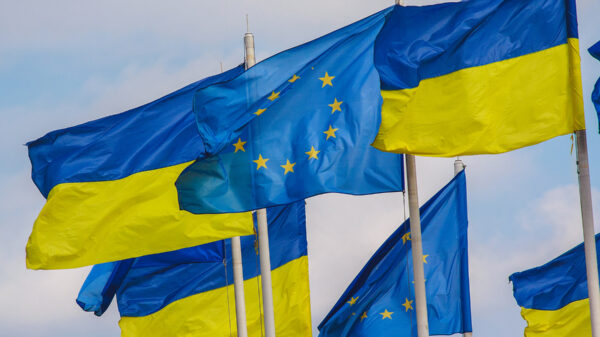The ‘Save bees and farmers, towards a bee-friendly agriculture for a healthy environment’ petition was formally presented to parliament’s environment and agricultural committees in a 4 hour hearing in Brussels yesterday afternoon. It is the 7th official European Citizens Initiative (ECI), a direct democracy tool created by the Treaty of Lisbon.
The European Commission says the ECI, along with an earlier pesticide ECI by some of the same organisers, inspired it to propose Europe’s first legally binding pesticide cuts, by 50%. It has also tabled a Nature Restoration Law. Both proposals are now under serious threat from conservative forces and special interests, ECI organisers warned the hearing yesterday.
ECI co-organiser, Dr Martin Dermine, of Pesticide Action Network Europe, told the hearing: “Pesticides are toxins that kill bees, butterflies and other pollinators as well as plants and microorganisms. Pesticides endanger our health, especially the health of farmers. Pesticides are also a major factor in the global extinction of species. We must start now to work with nature and not against it! It is the task of politics to protect the health of citizens instead of giving priority to the agricultural industry.”
ECI co-organiser Dr. Helmut Burtscher-Schaden, of GLOBAL 2000, told the hearing: “If we want to preserve the world as we know it, we have to change the way we deal with it. There is no alternative to pesticide reduction if we want to secure food supply in the long term. I appeal to you on behalf of the 1.1 million supporters of our ECI, please examine your political decisions, please listen to the science and not to the industry.”
Associate professor of food and agricultural policy, Jeroen Candel, told the hearing: “On behalf of 700 plus scientists, from across European member states and scientific disciplines, I come to share our deepest concern about the recent turn of the political tide in relation to the Sustainable Use of Pesticides Regulation. It is now up to you to use your political craftmanship to realise a truly green revolution of the European food system. The undelayed realisation of the Farm to Fork and Biodiversity Strategies’ pesticides reduction objectives would be a crucial first step in that direction.”
French cereal farmer Jean-Bernard Lozier, who has cut pesticide use by 80%, commented: “The strong reduction in chemical inputs did not lead to significant yields losses, while I reduced my workload. I am a happy farmer and the profitability of my farm is comparable to that of my neighbours.”
Synthetic pesticides pose “major risks to the health of citizens”, EU officials say, a cause of acute and long-term health impacts, especially for children and farmers themselves. They contribute to collapsing wildlife populations that today mean that half of all European farms face pollination problems. Synthetic pesticides should be used “only as a last resort”, or we risk a “bleak” future, the officials say.
124 different pesticides are found in the dust of European farmhouses according to Europe’s first comprehensive survey of pesticide contamination, presented to the hearing by Violette Geissen, professor of soil risks at Wageningen University. Up to 85 different pesticides are found in the homes of other social groups, though at lower concentrations, she said.
Professor Geissen said: “Pesticide residues are omni-present in ecosystems and humans. Most of the residues are hazardous. What is the real risk of being exposed to mixtures of high numbers of pesticides? Who has the answer to this? Nobody. We need legislation that applies the precautionary principle and regulates pesticide use and reduction.”
The EU first pledged to reduce pesticides as far back as 1993. But despite targets and even legislation, it has largely failed, mainly due to opposition from member states. The climate and biodiversity crises do not allow for a ‘business as usual’ policy, NGOs say.
Critical member states and European parliamentarians should stop opposing the draft pesticide and nature restoration laws, and there should be better enforcement of existing powers, the petition leaders said. Last week, the European Court of Justice told governments to stop the frequent practice of allowing farmers to continue using supposedly banned pesticides. Governments used ‘emergency’ exemptions on hundreds of occasions in recent years, according to an analysis of official data published in January. The most ‘Toxic 12’ pesticides should be rapidly banned, the NGOs say.
Negotiations on the Commission’s proposed pesticide reductions are expected to move forward slowly.



































